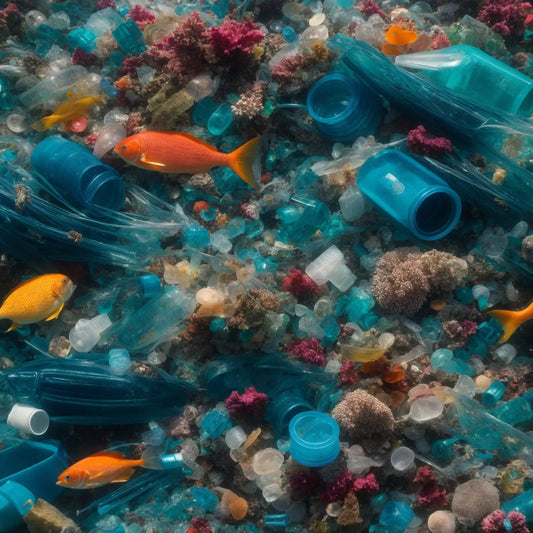What if Humans No Longer Existed: A Glimpse into Earth's Future
The idea of humanity's eventual disappearance from Earth is a sobering one. It prompts not just existential questions about our place in the universe but also pragmatic concerns about the future of this blue planet we call home. Human beings have left an indelible mark on Earth, and the repercussions of our possible absence could redefine the planet in unexpected ways. This article explores the hypothetical scenario of a world without humans, scrutinising the environmental, biological, and geological transformations that may occur.

Imagining Earth With Ghost Cities and Silence
In a scenario devoid of human activity, the most immediate impact would be the dramatic urban landscape. Cities, once bustling, vibrant metropolises, would quickly be overrun by nature. Skyscrapers and streets would recede under the relentless advance of vegetation, turning cityscapes into colossal urban forests. The lack of maintenance and interference would cause buildings to crumble, ferrous materials to rust, and glass to shatter, revealing a glimpse of the quiet desolation.
The silence in these deserted spaces, previously filled with the cacophony of human life, marks a profound shift. The bustling energy was replaced by a more natural, if eerie, soundscape of wind, wildlife, and the distant murmur of rivers and seas. This silence is not merely an absence but a transition, as Earth's symphony recalibrates to a new rhythm in the absence of human activity.
Reclaimed by Nature: A Green Earth
With humans no longer influencing the environment, nature would rapidly reclaim its territory. Plant life, once engineered and contained, would spread with undeterred vigour. Under the asphalt and concrete, seeds would germinate, roots would crack the toughest foundations, and life would once again emerge. This resurgence would lead to a surge in biodiversity as ecosystems re-establish a pre-human equilibrium.
Without the pressures of urban sprawl, agricultural demands, and industrial pollution, the Earth's flora and fauna would experience unprecedented growth. Endangered species could find their habitats expanded; the air, free from the smog of industry, could support populations of birds and insects thought locally extinct. The resurgence of wildlife may also lead to surprising and sudden changes in the distribution and behaviour of species.
The Oceans and Earth's Atmosphere Without Human Impact
The cessation of human activity spells a significant boon for the oceans. The relentless overfishing, plastic pollution, and disruption of marine ecosystems would grind to a halt, allowing fish stocks and marine life to recover. Coral reefs, largely imperilled, could stand a better chance of rehabilitation, and vulnerable coastal zones might rebound from intensive human exploitation.
In Earth's atmosphere, the absence of humanity spells cleaner air. As the ozone layers heal and greenhouse gases that precipitate climate change slowly dissipate, the planet could begin a natural process of climate recovery. The skies, unpolluted by industrial by-products, would herald a renaissance for stargazers and astronomers with clear, unperturbed views of the cosmos.
Geopolitical and Infrastructural Changes
The geopolitical map would be redrawn as borders and territories shift under the collective guidance of nature. The concept of nation-states loses significance in a world devoid of human politics. The physical markers of our existence—roads, bridges, and buildings— would deteriorate over time, but the earth beneath them would remember and realign, keying back into ancient patterns and processes.
This shift is not merely about the structures we leave behind but the systems we created. Dams and levees, once instrumental in harnessing the earth’s resources, could give way to rivers and allow natural flood plains to be reborn, mitigating the risk of natural disasters. The long-term effects would be complex, as each infrastructure serves as a thread in a larger web of ecological interactions.
Life Without Human Tools and Technology
The absence of humans challenges the narrative of technological progress, as tools, machines, and devices stand idle. The implications are widespread, ranging from the mundane—no more iPads or smartphones—to more complex systems that have become inseparable from nature, such as genetic engineering and climate modelling. The loss of these tools is a step back, perhaps, but it also allows nature to once again evolve without the asphyxiating grip of industrialisation.
The recovery and adaptation of Earth's systems without human intervention could lead to the emergence of new natural technologies. Organisms might evolve novel defences against changing environmental pressures, or ecosystems could self-correct in ways we can hardly predict. This points to a resilience in nature that has been stifled by human overreach and may offer lessons as we consider our ongoing relationship with the planet.
A Legacy of Human Art and Memory
One aspect of human culture that would persist even in our physical absence is our art and memory. The buildings, monuments, and art pieces that survive would stand as testaments to our civilization's existence. Over time, these structures would crumble, although perhaps not before they imprint the geological record.
Human accomplishments, preserved in a strata of earth, could serve as enigmatic remnants for future species to decipher, raising questions about their origins and purpose. But the most enduring legacy could be the memory of our species, carried by the collective consciousness of whatever lifeform or entity is capable of such reflection. Our stories, music, and art could continue to echo through the ages, connecting the future to our shared past on Earth.
The Unpredictable Nature of Earth's Response
It is important to acknowledge the variability and unpredictability of nature's response to the absence of humans. Every ecosystem and geological system is like a complex, adaptive organism in and of itself, and the interactions among them are equally intricate. The removal of a major player, such as humanity, could trigger cascades of change that are impossible to fully anticipate.
One model argues that the loss of key pollinators or species with essential ecosystem functions could set off chain reactions leading to further extinctions and ecological instability. In contrast, the revitalization of others could result in surprisingly fecund landscapes. One thing is certain in the absence of humans, the Earth would endure and adapt, its evolutionary path reshaped by new environmental dynamics.
Ethical and Philosophical Conundrums
The scenario of a post-human Earth raises ethical and philosophical questions about our role on the planet. What responsibilities do we hold for the world's future, and what kind of legacy do we seek to leave? Reflection on these questions can inform our choices, policies, and actions today, as we strive to coexist with Earth's other inhabitants.
In the realm of environmental ethics, the post-human Earth underscores the importance of biodiversity and the interconnectedness of life. Without human intervention, ecosystems self-organize and regenerate naturally, suggesting that a more hands-off approach could be not only pragmatic but also ethical. The challenge lies in recognizing and respecting the inherent value of non-human life forms and the intrinsic worth of ecosystems.
The Path Forward for Humanity
The vision of a world without humans should not be a call to inaction or resignation but a prompt for transformation. We stand at a precipice, capable of steering the narrative towards a future in which humans and Earth can thrive in symbiosis. This requires a reimagining of our place on the planet and a reevaluation of our priorities.
Investments in green technologies, rewilding initiatives, and an emphasis on sustainable practices can help us transition to a more harmonious coexistence with Earth. The goal is not only to ensure the survival of humanity but also the preservation of a bountiful and diverse planet. By envisioning a world without humans, we can gain a fresh perspective on our collective potential and a renewed commitment to caring for the only home we have.
In conclusion, the hypothetical scenario of a post-human Earth invites us to consider the broader implications of our species' existence. It is both a thought experiment and a call to action, challenging us to weigh our current choices against a horizon free from the repercussions of industrialisation and over-consumption. Whether such a world is a viable path or a utopian dream, the conversation it inspires is crucial. Our commitment to stewarding the environment, amplifying conservation efforts, and fostering sustainability may well determine the true legacy of humanity on Earth.

















0 comments